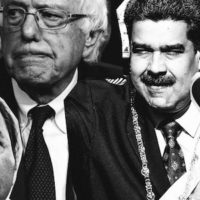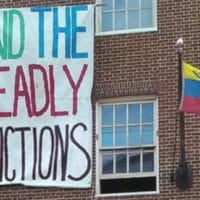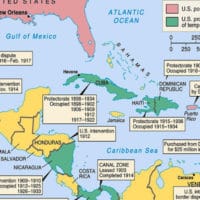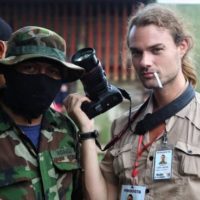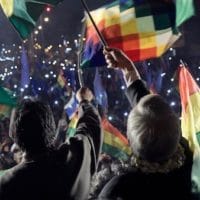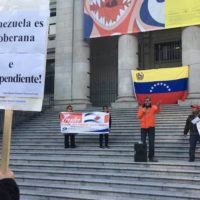-
Chris Hedges: Americans face a one-choice Election—The Oligarchy
Pulitzer-winning author and host of “On Contact” Chris Hedges joins Rick Sanchez to discuss the influence of lobbyists on establishment media in their coverage of politics and that donors, bankers and billionaires have on the U.S. political process.
-
Julian Assange must be supported
If the U.S. government succeeds in extraditing Julian Assange, it will be a major victory for U.S. imperialism–a promise that anyone getting in its way will ultimately pay the price.
-
Freedom Rider: Corona Virus and the failed American State
The United States has none of the systems or infrastructure that would allow it to accomplish what China has done to fight mass infection.
-
The uses of “populism”
CLASS struggle occurs in the realm of concepts too. The World Bank for instance systematically counters Left concepts by employing a novel tactic: it uses the very same concepts as are used by the Left, but gives them a wholly different meaning; as a result they either come to mean something entirely different from what the Left had originally meant by them, or, at the very least, they become fuzzy and hence useless to the Left. In either case the power of the Left concept is neutralised.
-
Media malfunction as Sanders notes positive aspects of Latin American socialism
When 60 Minutes (2/24/20) asked Sen. Bernie Sanders about his past support for aspects of Cuba’s socialist revolution, as well as for Nicaragua’s 1979–90 leftist Sandinista government, Sanders responded by saying he opposes what he described as the “authoritarian” features of the Cuban government, while noting that after the 1959 revolution, Cuba launched “a massive literacy program. Is that a bad thing?”
-
Government austerity is costing lives in the fight to contain Covid-19
I am old enough to remember that shortly after the 1968 election of Richard Nixon to the presidency, his campaign manager (and future U.S. Attorney General) John Mitchell said, “Watch what we do not what we say.”
-
United States Imposed Economic Sanctions: The Big Heist
The money trail of U.S. Sanctions leads to the Federal Reserve Bank of New York, which—behind the shadow of secrecy laws that effectively prohibit any form of public accountability—facilitates the theft of public wealth from targeted countries on a scale only previously accomplished through military invasion and occupation.
-
Testimony of a surgeon working in Bergamo, in the heart of Italy’s coronavirus outbreak
In one of the non-stop e-mails that I receive from my hospital administration on a more than daily basis, there was a paragraph on “how to be responsible on social media”, with some recommendations that we all can agree on.
-
Israel hits a brick wall
Elections are supposed to solve problems by reordering government, adopting new policies, and putting new people in control. But how many elections must Israel have before it realizes it can do none of those things because it’s caught in an intractable constitutional bind?
-
Elon Musk is acting like a neo-Conquistador for South America’s lithium
Elon Musk, the head of Tesla, wants to build an electric car factory in Brazil. He was supposed to meet Jair Bolsonaro, the president of Brazil, in Miami in early March, but he was too busy; instead, Musk will go to Brazil sometime this year.
-
“Absolute freedom of critique and discussion lies at the heart of the interests of the workers’ movement, and it must be pursued at all costs.”
On Rosa Luxemburg’s birthday, we present an extract from her 1906 essay “Critique in the Workers’ Movement,” available in English for the first time.
-
Johnstone brings her moral compass to our Dantesque world
It is one of the great personal accounts of the anguished decline of our uncivilization, both a riveting eye-witness account of many of the horrors and perfidies, and a primer for students of history and all those struggling to not only dismantle the beast, but to prepare us for what follows it.
-
Looking at change: U.S. and Cuba, blockade and revolution
The U.S. blockade of Cuba is like the sun; neither will disappear soon. But different: the U.S. politicians and people are aware of the sun, but may have forgotten about the Cuba blockade. It’s persisted for almost 60 years, basically unchanged. The following is about change.
-
Lebanon state prosecutor blocks order to freeze assets of 20 banks
Lebanon’s state prosecutor suspended an order on Thursday to freeze the assets of 20 local banks, warning it would plunge the country and its financial sector into chaos, according to a copy of the decision seen by Reuters.
-
With help from U.S. media, Nicaragua’s coup-mongers aiming for western hearts and minds
With its support tanking at home, Nicaragua’s opposition is seeking to win over public opinion in the West. A factually-challenged, distortion laden article in Vox by a familiar anti-Sandinista activist exhibited the campaign’s strategy.
-
Yellow-caking an epidemic: New York Times spreads the virus of hatred, again
In a repeat of the gutter journalism used to justify the 2003 Iraq War, the New York Times has had to “yellow-cake” up a foul brew of innuendo, half-truths, misrepresentations, outright lies—spiked fiercely with stereotypes, racial hatred, and red-baiting—to makes its case for a China “cover-up.”
-
MIT researchers confirm what we knew all along: Evo won and OAS lied
The report released by researchers from the Massachusetts Institute of Technology raises questions about why the Organization of American States lied and who benefited.
-
Canadian media lies about Venezuela
Canada’s public media the CBC long-ago entered the ranks of yellow journalism when it comes to its reporting on Venezuela. However, two recent reports, in particular, one on CBC radio’s “The Current” and the other a CBC News article by reporter Evan Dyer, weigh heavy on the sensationalism and light on facts. Filled with unsubstantiated claims, right-wing pundits parading as “pro-democracy” advocates and unchallenged declarations by the government of Canada officials, once again, the CBC firmly establishes their role as the mouthpiece of the government Canada.
-
Obamacare with a public option: fool me twice shame on me
There is an old saying “Fool me once shame on you, fool me twice shame on me.” That saying is relevant for the current healthcare debate in which former Vice-President Biden and elite Democrats are touting a reheated version of Obamacare with a public option. It is a case of trying to fool the American public twice.
-
Coronavirus: a disaster of capitalism’s making
What to do if confronted with an extremely contagious virus that medical experts say they have not seen before and don’t understand, and which is fast spreading and killing hundreds of people? a) Take precautionary measures to stop the virus spreading and prepare the health system for a potential shock? Or b) Ignore it, blithely assert – without any evidence – that it is little different from the common flu, accuse your adversaries.





